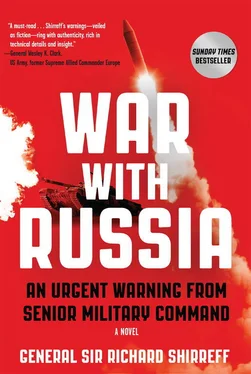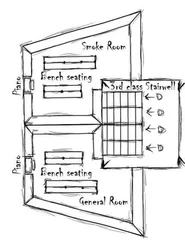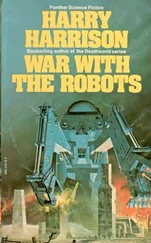“Next photo please, Bear.”
Bear clicked the mouse.
“We’re pretty sure that this is an amphibious task force en route out of St. Petersburg. Most likely destination? The west coast of Estonia or the Gulf of Riga to reinforce the land invasion. The Russians will be keeping their options open, depending on where they enjoy most success or where they meet resistance. So far, and be under no illusions,” concluded MacWhite in his characteristic drawl, “it’s slam dunk to the President.”
Even though he had already been through the photographs and discussed what they meant with MacWhite on the helicopter to Camp David, Bear still found it hard to believe the reality of what the President was now looking at on the screen. It was as if he was back at Leavenworth, at the School of Advanced Military Studies, playing a part in “The Strategic War Game,” the concluding exercise of the course.
But this was for real, and yet these remote pictures, detached and distant, conveyed no hint of the drama unfolding on the ground and at sea. The contrast between the mountain calm and peace of Camp David and the grim events MacWhite was describing was almost inconceivable. Then again, Bear tried to console himself, these old walls had seen it all and heard it all before, from Pearl Harbor and the grimmest days of the Second World War, through the Cuban Missile Crisis and into his own times; dark days and desperate deeds planned in the rustic comfort of this very room.
As President Dillon looked up from the screen, Bear could see the shock and concern in her eyes. Nothing she had experienced up to this moment could have prepared her for news such as this. However, she had not become President of the United States of America without being able to hide her emotions when necessary. And it was necessary now.
MacWhite continued talking, Bear sensed, in order to give her time to better control her inner turmoil, as she came to terms with the full implications of what she had just heard and seen.
“The next question, Madam President, is whether the NATO nations will now be prepared to activate collective defense under Article Five. If they fail to do so we will be on our own and our people might well conclude that, if Europe does not have the will to help us in this undertaking, it is not for our people to die helping them. If we step back, Russia will dominate Europe, and strategically the world will have become a very much more dangerous place.”
Dillon paused for a moment and then answered, her voice full of resolve. “This is not the first time in history that the freedom of Europe depends on the resolution of the US president… You can depend on me. But NATO must step up to the mark, too. What is Admiral Howard’s view?”
In that moment, Bear felt once again the leadership that the West was going to need so desperately.
“He’d just seen Kostilek, the Secretary General, before he talked to me,” MacWhite answered. “Kostilek is one of the good guys, but he’s pretty gloomy. He’ll try his damnedest, but he doubts whether he can get full NAC consensus about Article Five.”
The President raised an eyebrow, but MacWhite anticipated her next question. “An Article Five event cannot be declared without full consensus from the North Atlantic Council, the decision-making body of NATO. And we know there’s more than one nation that will not sign up to confronting Russia.”
The President nodded her understanding. “Continue.”
“The NAC is due to meet in a couple of hours. That’s eight a.m. Brussels time. Admiral Howard tells me the general view is one of defeatism, but pragmatism: if the Russians have taken the Baltics, there’s nothing anyone can do but accept it. But if that happens, NATO is dead in the water. NATO exists to defend its fellow members and a failure to do so negates its very purpose. It becomes a talking shop and no longer a military alliance. And there’s no shortage of talking shops in Europe.”
The President gave a small smile at MacWhite’s well-aimed jibe.
He continued, “It’s easy to be wise after the event but if NATO had stationed permanent, well-equipped forces in the Baltic states, it’s highly unlikely that the Russians would have chanced it as they have.”
“Too right… but too late now,” responded Dillon. “What about the Brits and French?”
“The Brits are beginning to make the right noises, especially now their Special Forces are secretly working up a joint plan with us to infiltrate into the Baltics to support the insurgents. But we still need them to go public that they are with us militarily. As for the French, the military are as gung-ho as ever, but the politicians are still making contradictory noises. That, ma’am, is one I will have to leave to you.”
Bear could almost see Dillon’s mind working as she sat and digested the news. Twice in the previous century America had stepped in to help save her allies in Europe. Bear knew his history; throughout his childhood America had underwritten European peace and freedom and helped prevent the Cold War turning hot. Now, nearly thirty years after the end of the Cold War, Americans were again fighting and dying in Europe. Meanwhile, some Europeans, even though they were facing an existential threat to their survival as Western democracies, were not only trying to avoid picking up their share of the burden, but were actively preventing others from doing so.
“Hell,” she said, “we’ll just have to persuade them, won’t we?”
Bear could see from the glint in Dillon’s eyes and the jut of her jaw that she was a fighter… and a leader.
“It’s one hundred years since America first defended European freedom and I don’t intend to duck the issue on my watch. So let’s start working those phones. Starting with the Prime Minister. This time he’s going to get a pat on the back for looking after the Global Response Force. I was told before you arrived that they’d already landed in Britain.”
“How did you know, ma’am?” MacWhite asked in surprise.
“CNN, General. I know, it’s an upside-down world we live in when the internet and TV news has information and live footage before even you get a chance to brief me. By the way, getting the Global Response Force moving was a good call. Thank you for that.” She looked at MacWhite with a smile.
“I’m going to thank the Prime Minister for the fact that, once again, Britain is standing shoulder to shoulder with us. And I’m expecting him to get stuck into the fight. If I read him right, he won’t be able to resist that.”
The Chief of Staff spoke. “Madam President, may I suggest we set up your calls from the bunker?”
0330 hours, Sunday, May 21, 2017
British Embassy, 5, J.Alunana Street, Riga, Latvia
SUNRISE COMES EARLY in Latvia in May, but with a sky thick with cloud, it was still dark at 3:30 a.m. when Marina Krauja woke Morland.
“Wake up, Tom… It’s happening. Russian airborne landings at the airport and east of the city.”
Morland was instantly awake. It had been all too short a night. By the time he had got back from the Latvian National Armed Forces Joint HQ to their base in the British Embassy it had been around midnight. He had briefed his team about the cyber-attack on communications he’d witnessed at the Joint HQ and, assuming the worst, had told them to be prepared for a quick move out. They needed to ensure their bergen rucksacks, radios and personal weapons—the standard British infantryman’s SA80 A2 LA85 assault rifles—were ready and their belt order webbing held at least four magazines of 5.56 millimeter rounds and enough food for the next 24 hours. He’d then grabbed some sleep, now interrupted.
Читать дальше












